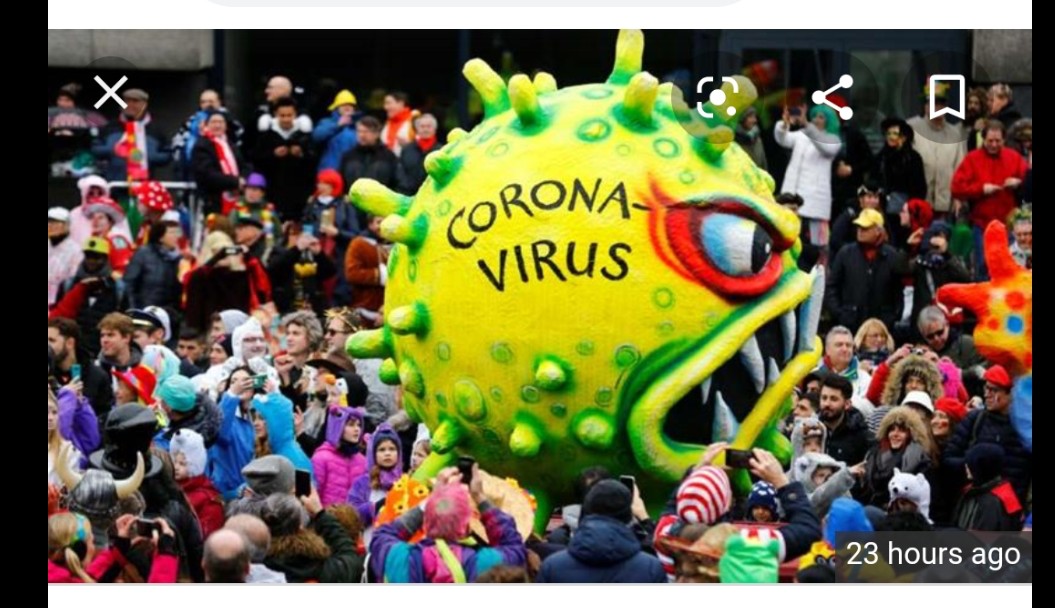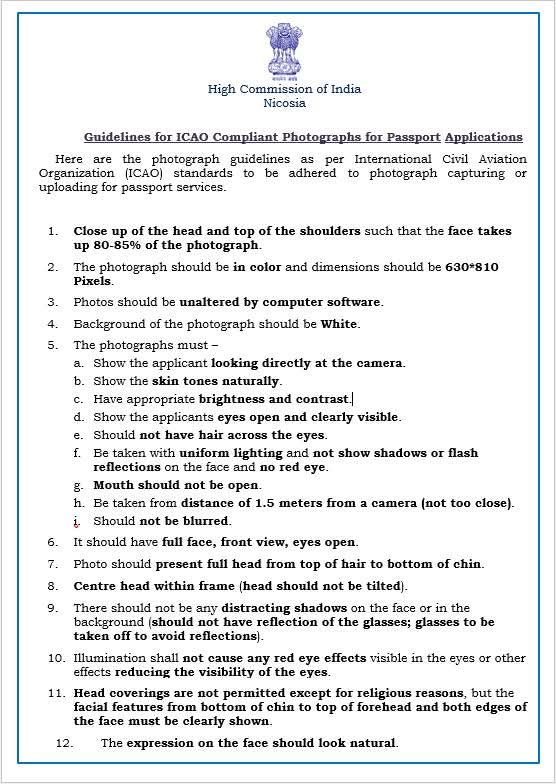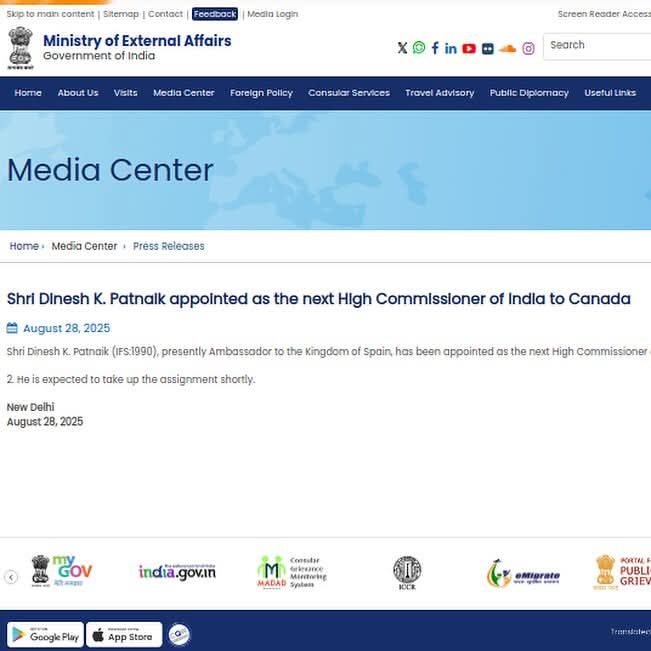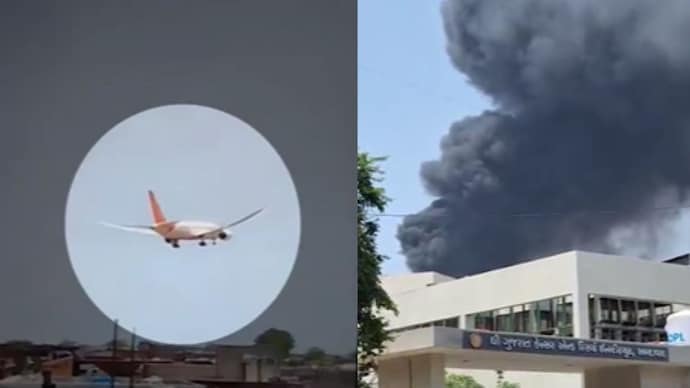Current information on the coronavirus
In China and other countries, there has been an increasing number of cases of illness due to a novel Coronavirus (Covid-19). In Germany, too, cases have already been reported. Here you will find information on the virus and on what Germany is doing to protect its citizens.
Present status around world
https://infographics.channelnewsasia.com/covid-19/map.html
Frequently asked questions
What do SARS-CoV-2 and Covid-19 stand for?
On 11 February, the novel coronavirus that had provisionally been known as 2019-nCoV, was given a new name: SARS-CoV-2. The acronym SARS stands for severe acute respiratory syndrome. The name denotes its close relationship to the SARS virus that caused an epidemic in 2003/2003.
The respiratory disease that can be caused by SARS-CoV-2 has also been given a new name. It is now called Covid-19 (Corona Virus Disease 2019).
How great is the danger that the respiratory disease Covid-19 will now also spread inside Germany?
It is to be expected that more cases will be imported to Germany. Further cases of transmission, chains of infection, localised infections and outbreaks in Germany are possible. The experts of the Robert Koch Institute currently rate the risk to public health in Germany as low to moderate. However, a worldwide spread of the pathogen is considered likely.
How prepared is Germany?
Germany is as prepared as it can possibly be. Above all, our network of centres of expertise and special clinics is unmatched by international standards. We have a very good disease warning and notification system, as well as excellent pandemic preparedness plans. In addition, regular emergency training exercises are conducted at airports in Germany. The Robert Koch Institute is responsible for coordination and information.
What arrangements have been put in place for travellers coming in on flights from China?
By order of the Federal Ministry of Health, travellers from all of China (including the special administrative regions of Hong Kong and Macao) have been required to fill in landing cards giving information on their flight and stating where they will be staying for the 30 days following landing, as well as where they stayed in China, people they were in contact with and their current health status. Airlines will distribute the landing cards and transmit the completed cards to the public health offices for safekeeping.
Airlines are also required to distribute a multilingual information brochure on board flights. With these orders, the Federal Ministry of Health is complying with the recommendations of the EU Council of Health Ministers.
For flights out of China, booking data must be kept for a period of 30 days, especially with respect to data that allows travellers and their assigned seats to be identified.
Pilots on flights from China have been required to inform air traffic control on the health status of their passengers before landing. The self-reported information on the landing card gives the airplane crew an additional decision-making aid when making their report to air traffic control. Should such a person be reported, the medical service at the airport will be informed, a physician will examine the patient on board and decide on further procedure.
What other arrangements have been put in place to protect the German public from the new coronavirus SARS-CoV-2?
The Robert Koch Institute has been granted wider powers in coordinating response measures with the Federal Laender.
Moreover, the EU Health Ministers, too, are currently coordinating their responses to guarantee a unified approach.
To ensure that suspected cases are picked up as early as possible, doctors, hospitals and laboratories have also been required to report any cases where there are reasonable grounds for suspicion (CoronaVMeldeV).
Additional, possible measures are under joint scrutiny depending on the risk assessment for Germany.
Currently, we have applied for extra-budgetary expenditure to the tune of up to 23 million euros. These monies are to continue the funding, inter alia, of measures related to repatriation and outbreak control, measures taken by the RKI, as well as research promotion and risk communication measures.
Do particular security precautions need to be taken at trade fairs?
At trade fairs, congresses and events, attention should generally be paid to the prevention of infectious diseases. This includes regularly cleaning surfaces and sanitary facilities, as well as ensuring good ventilation of the venue. Additionally, organisers can provide participants with clarification on general measures, such as hand hygiene, maintaining safe distances and cough or sneeze hygiene in an organised and structured manner. Responsibility over measures to be implemented at a trade fair or among its visitors rests with the local authorities.
The Robert Koch Institute recommends that people, who suffer from acute respiratory diseases, should ideally stay at home in order to better look after themselves, but also to protect others from infection. These measures are particularly sensible on account of the current flu outbreak. At this point in time, experts do not assume the SARS-CoV-2 virus will spread across Germany.
For visitors and exhibitors flying in from China, precautions have also been taken.
How is exchange taking place with other experts?
Collaboration with national and international experts is established and works well. We are in constant and close contact with numerous partners, for example the World Health Organization and the other EU countries. Here, established networks exist for such cases (for example the EU’s Health Security Committee or the G7’s Global Health Security Initiative).
Close collaboration is also taking place in the area of research. Research to develop a vaccine has already been coordinated through the Coalition for Epidemic Preparedness Innovations (CEPI).
On the federal level, the Robert Koch Institute is available as the competent counterpart. A coordinating office has been set up there to closely monitor the situation as it evolves. Beyond that, the Robert Koch Institute is also in charge of the coordination and consultation with the health authorities of the Federal Laender.
When was the first information about the outbreak received?
On 31 December 2019, China’s WHO country office was informed of a cluster of patients with pneumonia of unknown cause in Wuhan, a city of 90 million inhabitants in the province of Hubei, China.
Where did the outbreak start?
According to information from the Chinese authorities in Wuhan, some patients worked as traders or vendors at the Huanan Seafood Market in Wuhan. It is the largest seafood market in Wuhan with over 600 stalls and 1,500 workers. It has been reported that wild animals and/or organs of other animals and reptiles were also offered for sale at the market.
Therefore, wild animals are assumed to be the source of SARS-CoV-19. On current assumptions, the first patients became infected in early December last year at the Huanan Seafood Market that was closed on 1 January 2020.
How does the novel virus spread?
The novel coronavirus SARS-CoV-2 spreads from person to person. There have been reports of persons who were infected by individuals who had only shown slight or non-specific symptoms of disease.
The virus mainly causes respiratory illness (see “What are the symptoms of the novel coronavirus?”) As with other coronaviruses, it is thought to be primarily transmitted via exposure to respiratory secretions.
How long does it take from infection to the onset of disease?
It is currently thought that an infected person can go up to 14 days before noticing symptoms of the disease.
What are the symptoms of the novel coronavirus SARS-CoV-2?
As with other agents of respiratory illness, an infection with SARS-CoV-2 is likely to cause symptoms such as coughing, runny nose, sore throat and fever. Some patients complain about diarrhoea. In some patients, the virus appears to cause severe illness, such as difficulty breathing and pneumonia.
However, deaths have mainly been in patients who were elderly and/or had underlying chronic illnesses. The rate of laboratory-confirmed fatalities from the infection is currently about two per cent. However, the actual rate is probably lower since the data are of patients cared for at hospitals.
How can I protect myself?
As with influenza and other acute respiratory illnesses, proper hand hygiene, coughing and sneezing etiquette, as well as keeping one’s distance from sick persons, can also help prevent transmission of the novel coronavirus. These practices are also recommended in view of the flu outbreak.
Extensive information on cough and sneeze hygiene as well as hand-washing Umfangreiche Informationen zur Hygiene beim Husten und Niesen zum Händewaschen are available from the Federal Centre for Health Education (Bundeszentrale für Gesundheitliche Aufklärung).
What should persons do, if they fear they might have become infected with SARS-CoV-2, or if they are returning from regions where there has been an increased number of transmissions?
Persons who (independently of travel) were in personal contact with someone who has been laboratory-confirmed to be carrying the novel SARS-CoV-2 virus should immediately, irrespective of symptoms, get in touch with the competent health office. The health office will conduct an individual interview to assess the specific risk and determine the measures to be taken. This approach also makes it possible to coordinate medical attention should any symptoms emerge.
People who have spent time in a risk area as identified by the Robert Koch Institute should, irrespective of symptoms, avoid unnecessary contact with other people and stay at home, wherever possible. Should you experience acute respiratory symptoms, you will need to follow proper coughing and sneezing etiquette as well as proper hand hygiene and see a doctor, making sure you have called ahead to announce your visit and provide information regarding the places visited.
If you are travelling from a region where cases of COVID-19 have occurred, but it is not deemed a risk area, you should visit a doctor – after announcing your visit ahead of time by telephone and saying that you had been travelling – if you develop symptoms such as fever, coughing or difficult breathing within 14 days of returning from your trip. In addition, you should avoid unnecessary contact with other people, stay at home, wherever possible, and follow proper coughing and sneezing etiquette as well as proper hand hygiene.
Since 15 February 2020, a special procedure applies to all travellers flying in from China (see “What arrangements have been put in place for travellers coming in on flights from China?”).
Where can doctors and clinics obtain additional information?
The Robert Koch Institute posts information for professionals online: Informationen für die Fachöffentlichkeit.
Is there a vaccine?
Efforts to develop a vaccine are already underway. As yet, there is no vaccine available, however.
How is the disease treated?
Not all SARS-CoV-2 infections take a serious course. For example, in the cases known to date in Germany flu symptoms were predominantly at the forefront. Treatment for the infection focuses on providing the optimal support measures, depending on the seriousness of the case, as well as treating the relevant underlying diseases. A specific treatment, that is one that is directed at the new coronavirus itself, is currently not available.
Which areas are to be considered risk areas?
Currently (as of: 26 February 2020, the Robert Koch Institute has defined the following risk areas:
In China: Hubei province (incl. the city of Wuhan) and the cities Wenzhou, Hangzhou, Ningbo, Taizhou in Zhejiang province
In Iran: Ghom province
In Italy: Lodi province in the Lombardy region, and the city of Vo in the Padua province of the Veneto region.
In South Korea: Gyeongsangbuk-do province (North Gyeongsang)
This definition will be adjusted as the situation evolves.
What are the recommendations for persons travelling to areas in which transmission is occurring?
The current travel and safety recommendations can be found on the corresponding web pages of the Federal Foreign Office:
Generally, the following conduct is urgently recommended in risk areas to avoid infection: wash hands regularly, avoid visits to markets if animals are kept there; avoid contact with animals and raw animal products; avoid contact with persons suffering from respiratory diseases.
If, after having been to a risk area, you develop symptoms such as fever, coughing or shortness of breath, you may not travel while you are ill. In this case, you must see a doctor, calling ahead to inform the office of your symptoms. If you develop any of the above symptoms on your flight back, tell the flight attendants.
[airport poster – PDF, 257 KB, available in German, English and Chinese]
What should travellers returning from China keep in mind?
If you develop symptoms such as fever, coughing or difficulty breathing within 14 days of returning from China, you should avoid unnecessary contact with people and stay indoors, wherever possible.
If you need medical attention, it is important to call your doctor beforehand. Let him/her know that you will be coming in and explain that you were in the region and are having corresponding symptoms. This ensures that the corresponding precautions can be taken in order to avoid further infection.
If you first notice any symptoms when you are at the airport, please immediately alert the airport staff.
Have there been similar outbreaks in the past?
This new virus is a pathogen belonging to the coronavirus family, which is the same family as SARS (severe acute respiratory syndrome) and MERS-CoV (Middle East respiratory syndrome coronavirus).
In 2003, Germany saw nine probable SARS cases, of which four patient samples ultimately proved to be negative. The disease did not spread further within Germany
Reference:https://www.bundesgesundheitsministerium.de/en/press/2020/coronavirus.html#c17363



















